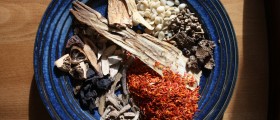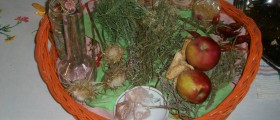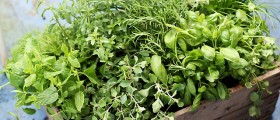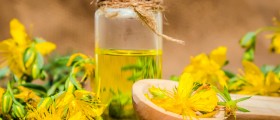
Role in Modern Human Society
Herbal medicine is a type of traditional or folklore medicine based on plants and plant extracts. Many plants have the ability to defend themselves from various types of fungi, insects, and herbivores by producing chemical compounds. In some instances the compounds are toxic but in others they are highly beneficial for human health.
Herbal blends used in traditional medicine bind to the receptor molecules in the body and in turn work in the same way as modern prescription drugs. In other words, this gives herbal medicine the opportunity to be as effective as the contemporary medicine and at the same time produce adverse side effects as well.
When it comes to the usage in modern human society, herbal medicine is widely employed in the developing countries, and it can be divided into different subparts such as the African medicine, Chinese herbal medicine, Siddha medicine, Native American medicine, and Shamanic herbalism. This comes as no surprise as more than two thirds of all plants that have a medical value come from the developing world. The World Health Organization ascertains that 80 percent of people use some form of herbal medicine in their primary medical care. As most of the world’s population cannot afford modern medications they can easily turn to growing their own remedies or collecting them from nature. Moreover, many contemporary drugs used in everyday medicine come from herbal remedies, such as Aspirin and opium.
Herbal medicine is also used in the developed world by a substantial number of individuals and it is available through practitioners such as homeopaths or naturopaths. In recent years the use of herbal blends in treating disease has been growing, as there is an increase in the general mistrust towards physicians and the pharmacological industry. It should be noted, however, that although many herbal remedies have been traditionally used for centuries they have not gone though any kinds of clinical trials.
In addition, a study of the usage of complementary and alternative medicines (CAM) was carried out in 2004 by the National Center for Complementary and Alternative Medicine and revealed interesting results. Herbal kind of therapy turned out to be the most popular of all CAMs. Other complementary and alternative medicines that were also widely used were yoga, acupuncture, and shiatsu. Aside from the US, the employment of herbal blends for health purposes is present in Europe as well. In Germany, for instance, prescription medications are sold together with herbal teas, plant extracts, and essential oils. Many individuals prefer herbal blends to pharmaceuticals as they consider them more pure. When it comes to the UK, the professional training in herbal medicine is funded by many state Universities including Middlesex University, University of East London, University of Lincoln, and others.
Herbal Philosophy
The herbal philosophy dates back thousands of years and can be divided into four distinct approaches such as the magical, the energetic, the functional dynamic, and the chemical approach. When it comes to the magical approach, it was widely spread among almost all pre-modern societies. The person who practiced was viewed as endowed with magical healing powers and abilities to cure both mind and soul. The energetic approach ascertains that the healing herbs are able to restore the balance of energy in the body. The practitioner does not need any superpowers and instead goes through a formal kind of training but needs to be more sensitive to energy than an average person. The functional dynamic approach proposes functionality of the herbs that is not always linked to a physical compound but it is sometimes connected with the physiological function. Lastly, the chemical approach studies the herbs in terms of their chemical compounds and tries to come up with best herbal blends to heal medical problems. The herbal philosophy also states that the pharmaceuticals are more effective in treating urgent problems, but the herbal blends provide the individuals with an opportunity to prevent illnesses through proper nutrition and a stronger immune system.
Types of Herbal Medicine Systems
There are numerous types of herbal medicine each set to serve a different purpose and to cater to a different clientele. The use of herbs for medical purposes can be as simple as making herbal tea at home to cure a cold. In many cases herbal blends are administered by professional practitioners who are either supplied from specialized companies or they grow their own plants.
On the other hand, there are various instances in which herbal medicine is combined with the mainstream heath care to yield better results and further improve the patients’ quality of life. Lastly, in every part of the world where different plants are grown there are distinct types of herbal medicine characteristic for specific geographical areas. In India, the Ayuryedic medicine is very complex and practiced in order to balance Vata, Pitta, and Kapha. In Tamil Nadu, the Tamils have their own herbal medicine also known as Siddha, which is gaining in popularity in the Western world as well.

















Your thoughts on this
Loading...